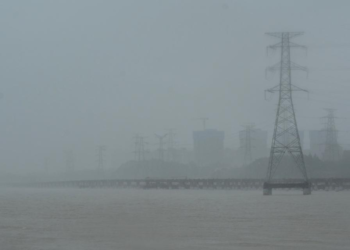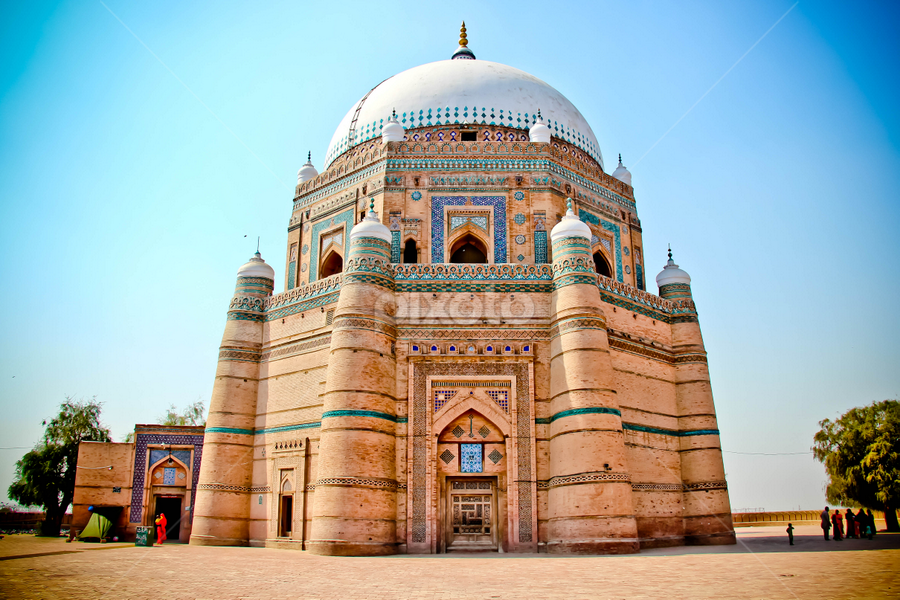East Pakistan war of 1971, though a national tragedy, still gave birth to stories of courage, valour, patriotism and unmatchable leadership, rarely found in the history of warfare. Nowhere in the world an army 1000 miles away from its home base, without heavy equipment, nearly completely devoid of air and naval support, surrounded by sea on one side and a five times stronger force having full international and diplomatic support on three sides, fought so well for complete nine months against all odds, including major portion of local population turned hostile.
Although the East Pakistan tale is full of such examples, if I were to talk about two at a time, let’s talk about two SULTANS, who stood head and shoulders above the others, to set an example of courage, loyalty, soldiering and leadership. One of them is Lt Col Raja Sultan Mehmood Shaheed, an illustrious son of 22 and 32 Baloch Regiments.
The tale of this SULTAN who lived up to his name “King or Lord” goes back to 7th December 1971. The place is Pirganj, 65 Kms north of Botha, a major city of eartwhile East Pakistan. He was commanding 32 Baloch Regiment, bitterly engaged against Indian Forces advancing into Rangpur-Bogra Sector, being led by Indian 20th Mountain Division with all its military might including tanks, air support and above all, Mukti Bahini. Mukti Bahini, organised and trained by India, were mainly the former Pakistan Army and Civil armed forces soldiers and officers who revolted and were involved in sabotage, killings, looting and other subversive activities inside East Pakistan.
At about 5 pm on 7th December 1971, 16 Divisional Headquarters informed 32 Baloch Regiment that Major General Nazar Hussain, GOC 16 Pakistani Division, has been ambushed and abducted by Mukti Bahini at Pirganj. The unit was tasked to proceed immediately and rescue the general. Colonel Sultan Mahmood didn’t waste a single moment and ordered the battalion to carry out the assigned task. The battalion less a company was located at that time at Masthan on road Pirganj-Bogra, approximately 5 Kms from Bogra. A Company led by Major Salim Raza Khan, left immediately to the reported ambush site. Colonel Sultan Mahmood also decided to proceed along with the leading company. Remaining two companies of 32 Baloch also moved under command Major Ajmal, Second in Command of the Battalion.
When leading component of battalion started marching on Bogra-Rangpur road they first encountered fire from Indian troops already deployed and well dug on both sides of the road. Accurate enemy fire still did not deter this force and they continued fighting gallantly. Due to darkness and in absence of prior ground reconnaissance, it was difficult to dislodge well entrenched enemy. Around 4 AM on 8th December, point platoon was completely pinned down due to firing by enemy weapons.
This was time when Colonel Sultan Mahmood, proud son of Pakistan, decided to exemplify the deadly combination of soldiering and leadership – leading the point platoon himself in a bitter hand to hand fight and bayonet charge against enemy fire spitting machine guns. Whole platoon gave a good account of themselves, suffering heavy casualties in dead and wounded. Setting the highest standards of courage and leadership, Colonel Sultan Mahmood led the charge himself and jumped into an Indian trench engaging in hand to hand fight with an Indian Captain Jatandar Nath Sood of 2/5 Gorkha Rifles. Colonel Sultan shot the captain with his pistol, injuring him seriously. Sensing criticality of the moment and seeing the marvellous charging spirit of Colonel Sultan, an Indian Havildar pumped his sten gun into Colonel, killing him on the spot in the Indian trench.
This brave soldier of the Baloch Regiment offered the ultimate sacrifice for his motherland, but never chose to turn his back to the enemy. Meanwhile, rest of 32 Baloch troops took up defensive positions on Karatoya River, effectively blocking enemy’s further advance towards Bogra. It is pertinent to mention here that GOC 16 Division ambushed the night before, had managed to reach his Divisional Headquarters at Bogra safely.
The story of the valiant charge of 32 Baloch, coupled with leadership qualities of Colonel Sultan Mahmood, was later narrated to 32 Baloch officers by the Indian brigade commander Brigadier Joginder Singh Bakhshi, with soldierly integrity, after ceasefire. This action has also been mentioned in the book “Indian Sword Strikes in East Pakistan” authored by Maj Gen Lachhman Singh Lehal, who commanded 20 Indian Mountain Division in the battle.
It is worth mentioning that Major Ibtar Singh, 2/5 Gorkha Rifles, Indian company commander in this battle who was personally present in the forward platoon under attack by 32 Baloch led by Colonel Sultan, later wrote a letter in 2012 to Colonel Sultan’s son Brigadier (now Lt Gen) Nauman Mahmood of Pakistan Army. He gave a first hand account of this battle by writing “I would like to assure you and through you your brother and sister, that your brave father Lieutenant Colonel Raja Sultan Mahmood died while leading his troops from the front. He died hardly five yards away from our forward trenches when shot through his chest by a burst of MMG fire. 32 Baloch did make valiant attempts to retrieve the body of their fallen Commanding Officer but in vain”. It bears testimony to this proud son of soil’s heroic and soldierly qualities, who displayed unmatchable courage in keeping with the tradition of leading from front alive and truly living up to his name “SULTAN”.
This amazing tale of supreme sacrifice found an appropriate place in the Indian press as well that deeply appreciated Colonel Sultan’s leadership qualities and his unmatchable courage. The Hindu and The Statesman published his war account in 2018 on its blog spots.





















Proud to read about Great Sultan of Sultans.
❤️❤️🇵🇰